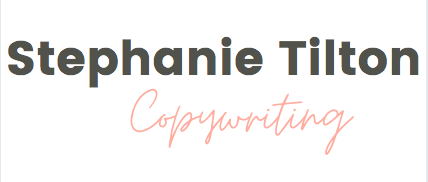Raise your hand if you like to cook…🙋
It’s one of my favorite things to do (when I’m not busy running to the soccer field)
As a child, I would spend hours watching my grandparents & parents in the kitchen. It’s where I would learn how to knead dough, make gravy from scratch, and whisk my own meringue.
If you’ve spent any time in a kitchen, you probably know how important it is to preheat your oven before baking anything. Not only does it speed up your cooking time, but everything cooks evenly. That little bit of kitchen prep might seem like a waste, but if your food cooks perfectly and is finished on time, Isn’t that worth it?!
“O.K. Steph, what does preheating an oven have to do with launching a course?”
Well, a lot actually…
The pre-launch phase is important because that’s your chance to “warm up” your audience before you start promoting your course offer.
And if you want the best chance of enrolling students when that happens, you need to consider the types of content you’re putting out during the days/weeks/months leading up to your cart open day.
You want to share content that will help potential students:
Overcome any and all objections they might have for buying a course like yours
Everyone has objections (or reasons for saying “no” to an offer) and your potential students are no different. The pre-launch phase is a great time to bring those objections up and shift the perspective around them.
Let’s say your potential student felt like they could teach themselves everything your course is teaching them. You might create an Instagram post or YouTube video that talks about why this is true...but also why going the “on my own route” can actually cost them in the long run.
The goal with overcoming objections isn’t to prove that your way is the best way. It’s to get your audience to think about their hesitations in a new way and realize that the solution to their problems is easier than they might think.
Some other possible objections you might encounter are:
-Time (not having enough)
-Money (can’t afford this)
-Skillset/physical ability (not being able to do something)
Knowing these objections upfront, you can also tailor your offer and sales messaging to alleviate the hesitation. (If your audience keeps saying they can’t afford your full price offer, consider offering payment plans to make things easier on them).
Experience small wins so they get a feel for what it’s like to learn from you
One of the biggest questions your potential students will have before buying your course is, “Is this course worth it?”
They want to know that the money they spend and time they invest will result in something positive for them. So, you need to spend some time in the pre-launch phase proving that when they work with you, they will see results.
One way to do this is to share one small tip or trick that’s relevant to the topic of your course. For example, if your course is teaching someone how to run profitable Facebook ads, you might share a tip that helps them set up the Pixel on their website.
If you don’t know, the Pixel is the tracking system for Facebook ads so you can target people who interact with your website and business pages.
You want your small win to make your potential students say, “If this free content is helping me this much, I bet the paid stuff will help me even more.”
Get to a place where they’re mentally & physically ready to jump into your course
There’s nothing better than getting tons of open cart enrollment during a launch. And you want your potential students to feel excited and ready to jump right into your course content. Otherwise, you run the risk of refund requests after they enroll and realize your course isn’t what they thought.
And that’s just as bad as getting zero enrollment during a launch.
If you know there are certain mindset issues or false beliefs that are acting as roadblocks to your potential students' success, bring those up in your pre-launch content. By doing this, you’re also instilling feelings of hope and possibility within your audience.
The pre-launch phase is just as important as the launch itself. Because without spending the time to warm your audience up, they’re not going to understand the importance of solving their problems (or getting your help to do that).
If I’m being honest, the pre-launch phase is less about getting your audience ready for a launch…
...and more about getting your audience ready for a transformation.
This isn’t something you want to skip out on.
Need help writing the copy for your upcoming course launch?
Click here to check out the different ways we can work together.

